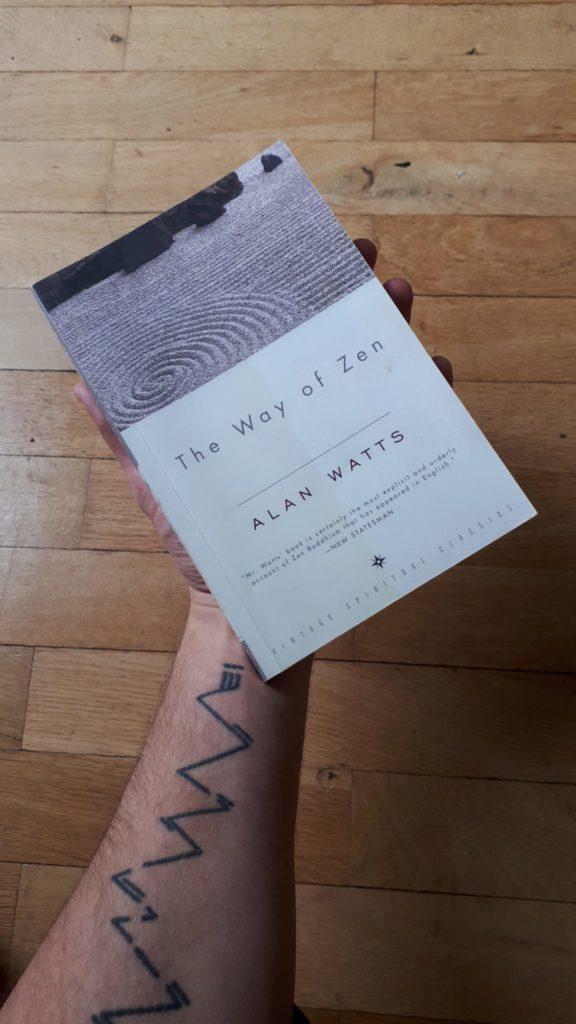The 4 Best Books for Zen Buddhism Beginners
If you're interested in Zen Buddhism, you're in luck! There are a number of great books on Buddhism that are perfect reading material for beginners. In this blog post, we'll introduce you to the four best books on Zen Buddhism for beginners. These books will help you better understand the philosophy of zazen and other concepts. So without further ado, let's get started!
The top four books are:
1. What is Zen? by Alan Watts
2. The Way of Zen by Alan Watts
3. Zen: The Authentic Gate by Kōun Yamada
4. Zen Mind, Beginner's Mind by Shunryu Suzuki
1. What is Zen? by Alan Watts
What is Zen? is a book by the famous philosopher Alan Watts. In this book Alan Watts introduces the reader to the history and philosophy of Zen Buddhism. He covers topics such as what enlightenment is, the difference between Eastern and Western thought, and how to practice Zen. If you are looking for a book that will give you a general introduction to Zen Buddhism, this is the book for you!
Even though Alan Watts was not a Zen Buddhist himself, he had an incredible knowledge of Zen Buddhism and its concepts. Coupled with his Western roots, he was able to mediate between Eastern philosophies and Western thought like no other - making this book a masterpiece for beginners.
If you don't know Alan Watts, we have an article on Who and how he really was.
The book is organized as follows:
PART 1: SIMPLE WAY, A DIFFICULT WAY
PART 2: ZEN RECONSIDERED
PART 3: SPACE
PART 4: ZEN MIND
Is What is Zen? worth reading?
This book is an excellent choice if you don't really know what Zen is, or if you want to gain deeper knowledge. This book covers both and is written by one of the best mediators between Eastern philosophies and the Western mind.
2. The Way of Zen by Alan Watts
The Way of Zen is another book by Alan Watts. In this book, Alan Watts delves deeper into the history and practice of Zen Buddhism. He covers topics such as zazen (Zen meditation), koans, and much more. If you want to learn more about the practice of Zen Buddhism, this is the book for you!
In particular, the fact that the book focuses on the origins of Zen as well as the principles and practices makes this a well-rounded, beginner-friendly read.
If you want to learn more about Watts' teachings, you can find a sample article here: Alan Watts on muddy water and calming the mind
The book not only highlights the history of Zen, but also explains its principles and gives examples to practice it. Here are the chapters:
Part One: BACKGROUND AND HISTORY
1 The Philosophy of the Tao
2 The Origins of Buddhism
3. mahayana buddhism
4 The Rise and Development of Zen
Part Two: PRINCIPLES AND PRACTICE
1. "Empty and Marvelous"
2. "Sitting Quietly, Doing Nothing"
3. za-zen and the koan
4. zen in the arts
Is The Way of Zen worth reading?
The Way of Zen is a great book for anyone who wants to learn more about the history and practice of Zen Buddhism. Most people who know the book recommend it. This is not really a surprise, because Alan Watts had a profound way of explaining exotic things to the Western mind.

3. Zen: The Authentic Gate by Kōun Yamada
Zen: The Authentic Gate is a book by Koun Yamada, a Japanese priest of Rinzai Zen Buddhism. In this book, Yamada explains in detail the practice of zazen (Zen meditation). He covers topics such as posture, breathing, and managing thoughts during meditation. If you are looking for a book that will give you a thorough understanding of zazen, this is the book for you!
You may even be looking specifically for a book written by someone who comes from the country where Zen Buddhism has its roots (Japan) and is an expert in the field (he was a Japanese Buddhist who led the Sanbo Kyodan lineage of Zen Buddhism).
The book is organized as follows:
1. suffering and modern-day humanity
2. the zen view
3 The Principle of Salvation in Zen Buddhism
4 The Three Great Aims of Zen
5 Types of Zen Practice
6 Koan Practice and Just Sitting
7 Finding an Authentic Teacher
8 Depth of Enlightenment
9 Cause and Effect as One
10 Deceptive Phenomena
11 Belief, Understanding, Practice, Realization, and Personalization
12. Eight Great Tenets of Mahayana Buddhism
13. on private interview
14 Three Necessary Conditions for Zen Practice
15 Zen Practice for People of Other Religions
16 The Actual Practice of Zazen
17 Practical Matters
Is Zen: The Authentic Gate worth reading?
Zen: The Authentic Gate is a great book for anyone who wants to learn more about the practice of Zen Buddhism. However, the book is a bit more difficult to read than the first two books we featured, because Alan Watts had a unique way of explaining exotic Eastern concepts to Westerners in the simplest way possible.
4. Zen Mind, Beginner's Mind by Shunryu Suzuki
Zen Mind, Beginner's Mind is the ideal book to learn about an offshoot of Buddhist philosophies: Zen Buddhism (in this article, we explain All differences for you).
Suzuki was a Japanese priest and teacher of Zen Buddhism who founded the San Francisco Zen Center. This book is an excellent introduction to the world of Zen Buddhism.
The book is organized as follows:
PART 1 RIGHT PRACTICE
- Posture
- Breathing
- Control
- Mind Waves
- Mind Weeds
- The Marrow of Zen
- No Dualism
- Bowing
- Nothing Special
PART 2 RIGHT ATTITUDE
- Single-Minded Way
- Repetition
- Zen and Excitement
- Right Effort
- No Trace
- God Giving
- Mistakes in Practice
- Limiting Your Activity
- Study Yourself
- To Polish a Tile
- Constancy
- Communication
- Negative and Positive
- Nirvana the Waterfall
PART 3 RIGHT UNDERSTANDING
- Traditional Zen Spirit
- Transiency
- The Quality of Being
- Naturalness
- Emptiness
- Readiness, Mindfulness
- Believing in Nothing
- Attachment, Nonattachment
- Calmness
- Experience, Not Philosophy
- Original Buddhism
- Beyond Consciousness
- Buddha's Enlightenment
- Epilogue: Zen Mind
- Afterword by David Chadwick
- Acknowledgment
Is Zen Mind, Beginner's Mind worth reading?
This book is an excellent starting point for learning the basics of Zen Buddhism. The topics are clearly explained and it is written in an accessible style. Suzuki's experience and wisdom are reflected in his writing, making the book a pleasure to read.
We hope you enjoyed our list of the four best books on Zen Buddhism for beginners. Do you have any other suggestions? Let us know in the comments!
Looking for more beginner books from other philosophical schools?
The best Confucianism books for beginners
The 5 best books for Taoism beginners







